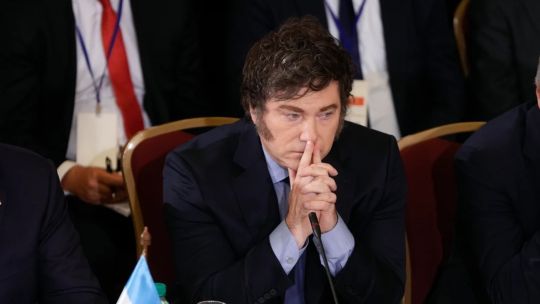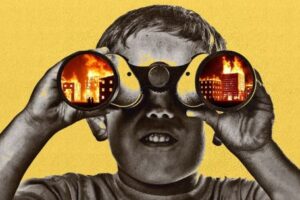
The United Nations (UN) has asked President Javier Milei to clarify a series of actions that could represent an “attack on judicial independence” and a threat to democracy.
In an official statement signed by nine rapporteurs from the United Nations Human Rights Council, the multilateral body asked about allegations of serious incidents of repression against social protest, harassment of judges, and excessive use of force by federal security forces.
“We wish to express our deep concern over what appears to be an organised and deliberate effort to harass and punish judges in retaliation for their judicial work,” reads the statement, published on July 11.
The international complaint stems from the case of Buenos Aires City Court Judge Karina Andrade, who reported receiving threats and being the target of smear campaigns after she ordered the release of 114 people arrested during a protest on 12 March 2025.
According to her account, the arrests were carried out “without the necessary legal safeguards,” such as failure to notify the court and omissions regarding the place, time, and grounds for detention.
She also emphasised that “the right to protest, especially when exercised in defence of vulnerable groups, is a right protected both constitutionally and under international law.”
As a result of these events, officials from the Security Ministry and Justice Ministry announced plans to seek Andrade’s removal from office.
President Javier Milei’s top spokesperson, Manuel Adorni, wrote on social media: “Revolving-door justice is directly responsible for insecurity. Those who promote impunity with every ruling are also complicit.”
The UN analysis alleges a smear campaign against Judge Andrade: “This pattern of abusive stigmatisation and ad hominem attacks by the Executive … includes harassment and abuse from the public,” including death threats and threats of sexual violence against the magistrate.
The United Nations rapporteurs added that these reprisals “appear to constitute a direct attack on the independence of the federal judiciary and its judges.”
A case involving Judge Roberto Gallardo was also highlighted, who has faced persecution for limiting the involvement of federal forces in security operations.
The experts warned that these actions could constitute serious breaches of international treaties. They cautioned that criminalising protests, applying anti-terror laws to demonstrators, and persecuting judges contribute to a climate of widespread repression.
“Isolated incidents of violence are not sufficient to deem an entire gathering as non-peaceful. Mass arrests are arbitrary and amount to collective punishment,” the document concludes.
While awaiting a response, the United Nations demands that the Milei government reveal its plans to safeguard civil rights, ensure freedom of expression, and prevent retaliation. So far, the Executive has not responded and has requested an extension to file its defence.
Beyond judicial matters, the United Nations has raised concerns about a serious decline in civil liberties since President Milei took office in December 2023.
The statement specifically cites the use of Security Minister Patricia Bullrich’s anti-picket protest protocol, the enactment of Emergency Decree 70/2023, the “Omnibus Law,” and other legal reforms which, according to experts, have contributed to an environment of widespread repression.
Between January and June 2024, the report records at least 80 people arbitrarily detained; 665 injured, some with permanent vision loss from rubber bullets; and at least 47 attacks on journalists.
More than 200 people were injured during a June 12 security operation, when “peaceful protests were suppressed with tear gas, rubber bullets, baton charges, arbitrary arrests, and dangerous police manoeuvres.”
The report also highlights the presence of undercover agents at marches – a matter currently under investigation by Congress.
The UN also drew particular attention to the repression of elderly pensioners who gather every Wednesday in central Buenos Aires outside Congress. It reported cases of beatings, pepper spray burns, and arbitrary arrests, including of individuals over 80 years old.
In a particularly worrying case, photographer Pablo Grillo was seriously injured in the head by a projectile fired by a member of the Gendarmerie. He spent months in intensive care and is undergoing rehabilitation.
– TIMES/NA
related news





